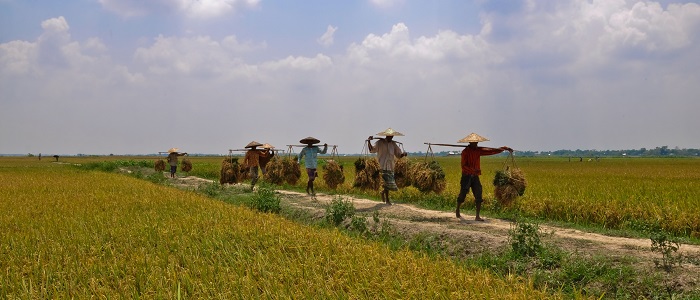
Summary
Over the last few decades, declining agricultural yield is emerging as an important concern in South Asia, a region marked by inequities in food and nutritional security. The current patterns of fertilizer use with heavy reliance on nitrogenous fertilizer – coupled with poor nutrition management, lack of complementary inputs, declining soil fertility, and weak marketing and distribution systems – have emerged as major impediments to improving the effectiveness of fertilizer use in the region. This study aims to identify the major constraints that reduce the effectiveness, efficiency, and sustainability of fertilizer use in South Asia.
The study finds that high imbalance in fertilizer application is an important element of nutrition mismanagement. Irrigation water and better seeds are important complementary inputs needed for efficient fertilizer use. The rise of single-farmer groundwater-based irrigation has made South Asia’s large scale surface irrigation schemes under-perform. Despite the potential benefits from drip and sprinkler irrigation methods, these have not improved. Other impediments to optimal fertilizer use include inadequate extension services, the underuse of domestic capacity, limited access to credit, and inefficient fertilizer distribution systems.
The study develops targeted recommendations for countries in South Asia. In Bangladesh, it recommends more incentives to raise the domestic production of fertilizers. In India, it suggests increasing fertilizer supplies through both domestic production and imports, and creating an efficient distribution network. In Nepal, the government needs to review its policy on importing fertilizers from neighboring India, so that farmers are not forced to pay the comparatively higher prices charged by international traders, and are less impacted by unreliable supply.
- Tahreen Tahrima Chowdhury (Bangladesh Institute of Development Studies, Dhaka, Bangladesh)
- Khondoker Tanveer Haider (University of Oxford, Oxford, UK)
- Mustafa K. Mujeri (Bangladesh Institute of Development Studies, Dhaka, Bangladesh)
- Siban Shahana (Bangladesh Institute of Development Studies, Dhaka, Bangladesh)
Name of the Program | Supporting Policy Research to Inform Agricultural Policy in Sub-Saharan Africa and South Asia
If you cite this resource, please notify communications@gdn.int with the subject line 'GDN citation'.
